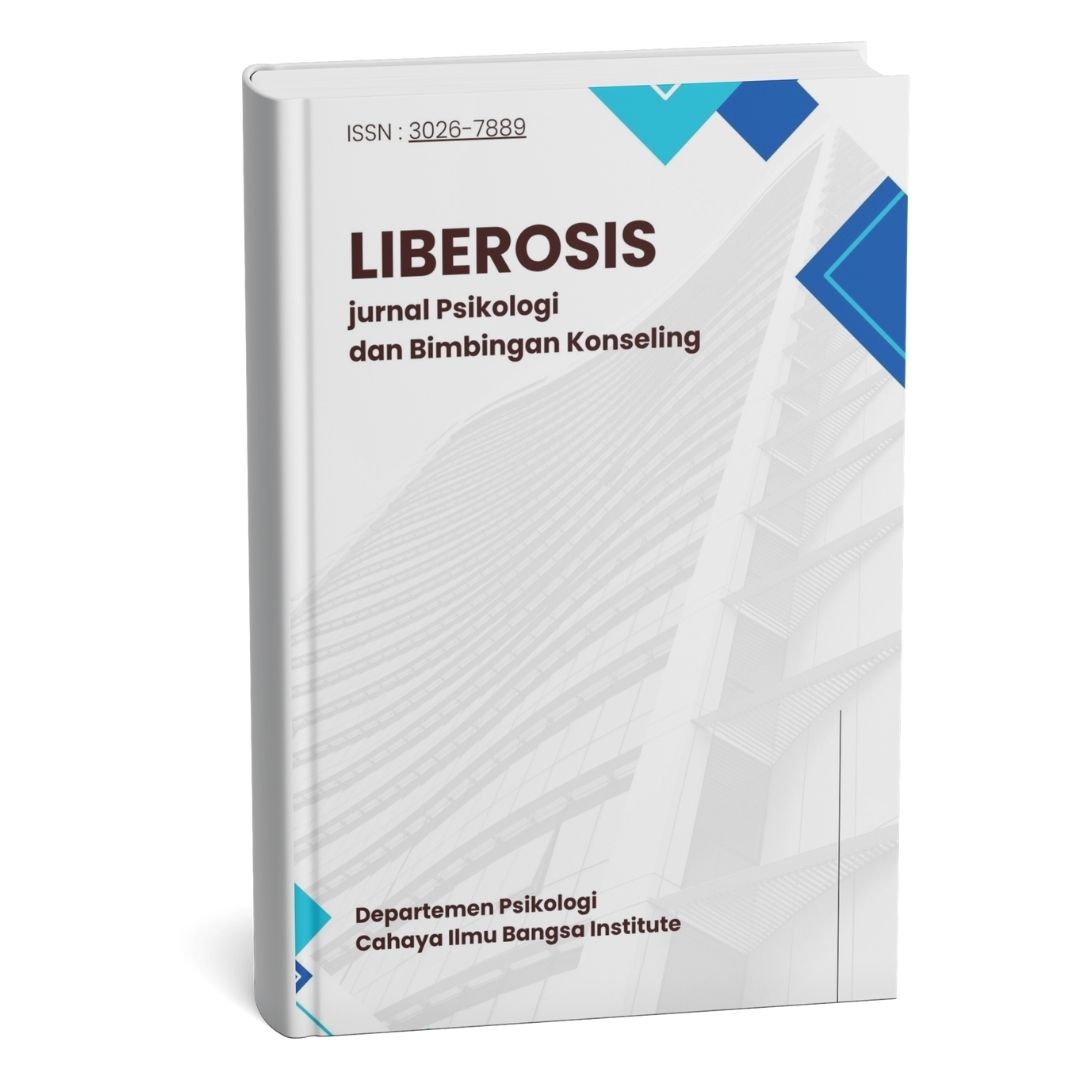Abstract
The development of online games like Genshin Impact has brought attention to behavioral addiction risks, particularly Internet Gaming Disorder (IGD). This study aims to describe the profile of IGD tendencies within the Genshin Impact player community in Indonesia. Using a descriptive quantitative approach, data were collected through purposive sampling of 302 active players residing in Indonesia. The measurement instrument was based on the nine IGD criteria from the DSM-V-TR and analyzed descriptively using SPSS. Results showed that most respondents (68.54%) fell into the moderate IGD category, 16.89% high, and 14.57% low. The highest scoring indicators were Mood Modification (3.99) and Preoccupation (3.68), reflecting strong emotional involvement and the use of games for emotion regulation. Meanwhile, the lowest scoring indicators were Risk (1.61) and Deception (1.93), indicating that financial and social dysfunctions were not yet dominant symptoms. These findings suggest that emotional factors are more influential in driving game engagement in this community than external motivations. The study provides a foundation for preventive intervention and contributes to the theoretical understanding of IGD tendencies in online gaming communities
Perkembangan game daring seperti Genshin Impact telah memunculkan risiko gangguan perilaku adiktif yang dikenal sebagai Internet Gaming Disorder (IGD). Penelitian ini bertujuan untuk mendeskripsikan profil kecenderungan IGD pada komunitas pemain Genshin Impact di Indonesia. Penelitian menggunakan pendekatan kuantitatif deskriptif dengan teknik purposive sampling terhadap 302 responden yang merupakan pemain aktif dan berdomisili di Indonesia. Alat ukur yang digunakan mengacu pada sembilan kriteria IGD dari DSM-V-TR dan dianalisis secara deskriptif menggunakan SPSS. Hasil menunjukkan bahwa mayoritas responden (68,54%) berada pada kategori sedang dalam kecenderungan IGD, 16,89% tinggi, dan 14,57% rendah. Indikator dengan skor tertinggi adalah Mood Modification (3,99) dan Preoccupation (3,68), menunjukkan keterlibatan emosional kuat serta penggunaan game sebagai sarana regulasi emosi. Sementara itu, indikator dengan skor terendah adalah Risk (1,61) dan Deception (1,93), menandakan gejala disfungsi sosial dan keuangan belum dominan. Temuan ini mengindikasikan bahwa keterlibatan dalam game pada komunitas ini lebih banyak dipengaruhi oleh faktor emosional. Hasil penelitian dapat menjadi dasar untuk intervensi preventif dan pengembangan wawasan teoritis terkait kecenderungan IGD di kalangan komunitas game daring.
References
Adams, M. J. (2022). Tech Otakus Save The World? Gacha, Genshin Impact, and Cybernesis. British Journal of Chinese Studies, 12(July). https://doi.org/10.51661/bjocs.v12i2.199
American Psychiatric Association. (2013). Diagnostic and Statistical Manual of Mental Disorders (5th ed.). American Psychiatric Publishing. https://doi.org/10.1176/appi.books.9780890425596
Brand, M., Young, K. S., Laier, C., Wölfling, K., & Potenza, M. N. (2016). Integrating psychological and neurobiological considerations regarding the development and maintenance of specific Internet-use disorders: An Interaction of Person-Affect-Cognition-Execution (I-PACE) model. Neuroscience and Biobehavioral Reviews, 71(August), 252–266. https://doi.org/10.1016/j.neubiorev.2016.08.033
Dong, G. H., & Potenza, M. N. (2022). Considering gender differences in the study and treatment of internet gaming disorder. Journal of Psychiatric Research, 153(January), 25–29. https://doi.org/10.1016/j.jpsychires.2022.06.057
Gao, Y. X., Wang, J. Y., & Dong, G. H. (2022). The prevalence and possible risk factors of internet gaming disorder among adolescents and young adults: Systematic reviews and meta-analyses. Journal of Psychiatric Research, 154(June), 35–43. https://doi.org/10.1016/j.jpsychires.2022.06.049
Jannah, M. (2018). Metodologi Penelitian Kuantitatif Untuk Psikologi. In UNESA University Press.
King, D., & Delfabbro, P. (2019). Internet Gaming Disorder Theory, Assessment, Treatment, and Prevention. In Internet Gaming Disorder: Theory, assesment, prevention and Treatment.
Kowalik, B. A., Baggio, S., King, D. L., & Delfabbro, P. (2025). Understanding Gaming Disorder: a Network Analysis of Impaired Control, Impulsivity, Mood, Coping, and Game Flow. International Journal of Mental Health and Addiction, 0123456789. https://doi.org/10.1007/s11469-025-01483-5
Lakić, N., Bernik, A., & Čep, A. (2023). Addiction and Spending in Gacha Games. Information (Switzerland), 14(7), 1–19. https://doi.org/10.3390/info14070399
Lemenager, T., Neissner, M., Sabo, T., Mann, K., & Kiefer, F. (2020). “Who Am I” and “How Should I Be”: a Systematic Review on Self-Concept and Avatar Identification in Gaming Disorder. Current Addiction Reports, 7(2), 166–193. https://doi.org/10.1007/s40429-020-00307-x
Lenaini, I. (2021). Teknik Pengambilan Sampel Purposive Dan Snowball Sampling. HISTORIS: Jurnal Kajian, Penelitian & Pengembangan Pendidikan Sejarah, 6(1), 33–39. https://doi.org/10.31764/historis.v6i1.4075
Liu, D., Lemmens, J., Hong, X., Li, B., Hao, J., & Yue, Y. (2022). A network analysis of internet gaming disorder symptoms. Psychiatry Research, 311(July 2021), 114507. https://doi.org/10.1016/j.psychres.2022.114507
Marraudino, M., Bonaldo, B., Vitiello, B., Bergui, G. C., & Panzica, G. (2022). Sexual Differences in Internet Gaming Disorder (IGD): From Psychological Features to Neuroanatomical Networks. Journal of Clinical Medicine, 11(4). https://doi.org/10.3390/jcm11041018
Pontes, H. M., & Griffiths, M. D. (2015). Measuring DSM-5 internet gaming disorder: Development and validation of a short psychometric scale. Computers in Human Behavior, 45, 137–143. https://doi.org/10.1016/j.chb.2014.12.006
Raneri, P. C., Montag, C., Rozgonjuk, D., Satel, J., & Pontes, H. M. (2022). The role of microtransactions in Internet Gaming Disorder and Gambling Disorder: A preregistered systematic review. Addictive Behaviors Reports, 15(February), 100415. https://doi.org/10.1016/j.abrep.2022.100415
Stevens, M. W. R., Dorstyn, D., Delfabbro, P. H., & King, D. L. (2021). Global prevalence of gaming disorder: A systematic review and meta-analysis. Australian and New Zealand Journal of Psychiatry, 55(6), 553–568. https://doi.org/10.1177/0004867420962851
Tang, A. C. Y., Lee, P. H., Lam, S. C., Siu, S. C. N., Ye, C. J., & Lee, R. L. T. (2022). Prediction of problem gambling by demographics, gaming behavior and psychological correlates among gacha gamers: A cross-sectional online survey in Chinese young adults. Frontiers in Psychiatry, 13(August), 1–12. https://doi.org/10.3389/fpsyt.2022.940281
Wang, H. Y., & Cheng, C. (2022). The Associations Between Gaming Motivation and Internet Gaming Disorder: Systematic Review and Meta-analysis. JMIR Mental Health, 9(2). https://doi.org/10.2196/23700
Wang, Y., Liu, B., Zhang, L., & Zhang, P. (2022). Anxiety, Depression, and Stress Are Associated With Internet Gaming Disorder During COVID-19: Fear of Missing Out as a Mediator. Frontiers in Psychiatry, 13(May 2020), 1–7. https://doi.org/10.3389/fpsyt.2022.827519
Yen, J. Y., Lin, P. C., Wu, H. C., & Ko, C. H. (2022). The withdrawal-related affective, gaming urge, and anhedonia symptoms of internet gaming disorder during abstinence. Journal of Behavioral Addictions, 11(2), 481–491. https://doi.org/10.1556/2006.2022.00008
